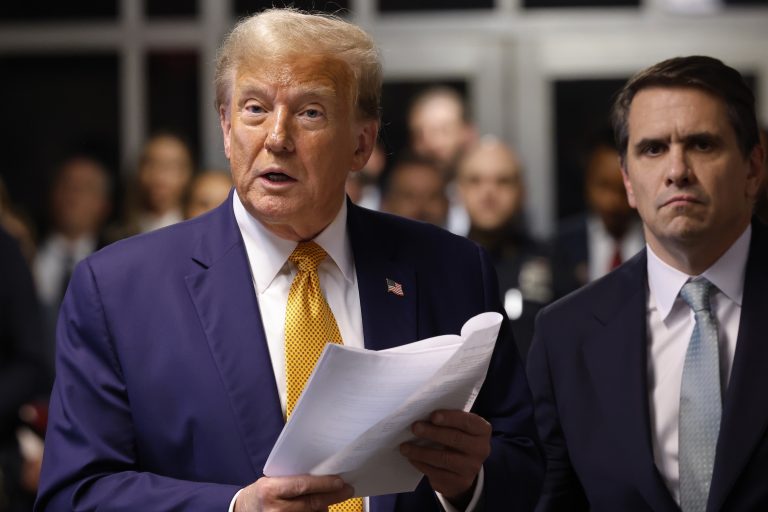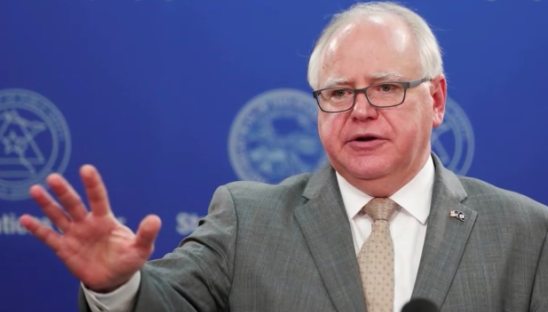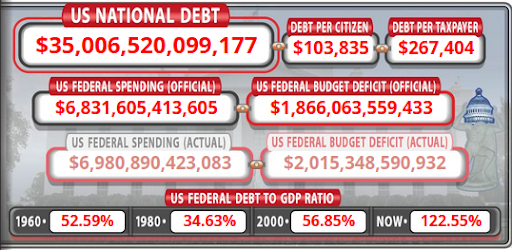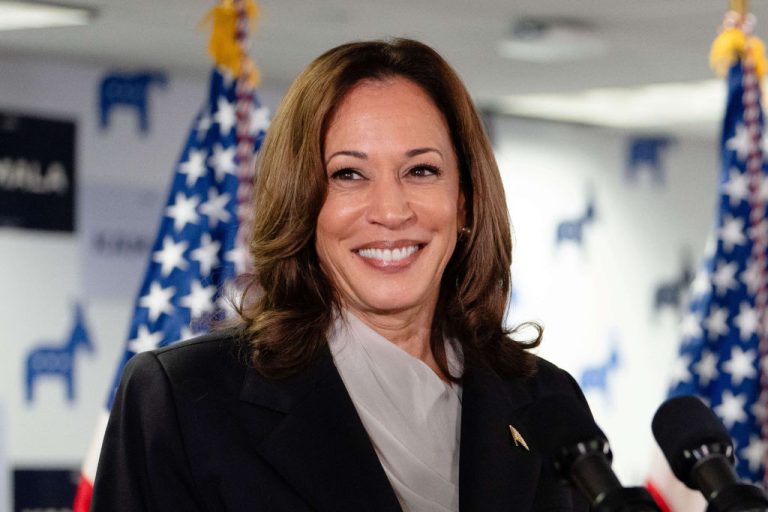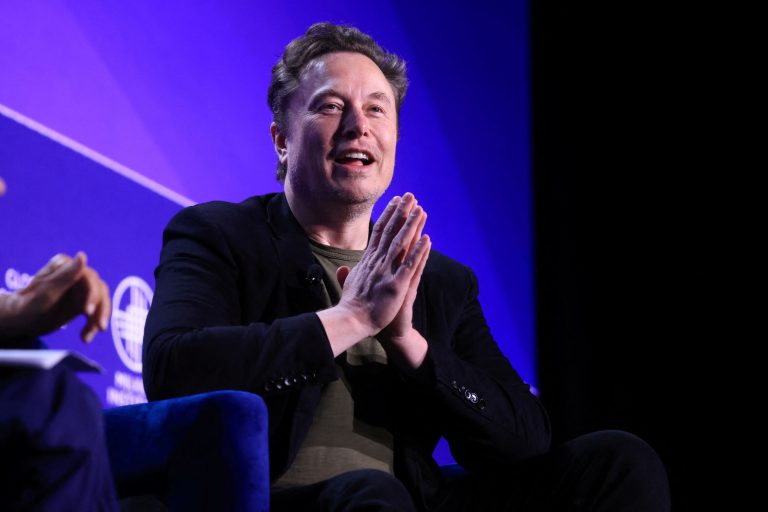On Tuesday (May 14), former U.S. President Donald Trump said the Biden administration’s new tariffs on China, imposed on US$18 billion worth of electric vehicles, semiconductors and medical products should be applied to other types of vehicles and products as well.
As he entered court for his hush money trial in New York, Trump told reporters that incumbent U.S. President Joe Biden’s tariffs did not go as far as they ought to.
“They’ve also got to do it on other vehicles and they have to do it on a lot of other products,” he said. “China’s eating our lunch right now. … They have to do it on much more than electric vehicles.”
Trump also criticized Biden for not doing more to raise tariffs on China’s exports sooner.
- Biden Proposes Tripling Tariffs on Chinese Steel, Aluminum to Counter Beijing’s Product Dumping
- In China, Blinken Lays Out America’s Red Lines on Russia, Other Tensions
- Trump Will Continue Support for Taiwan if He Becomes President, Ex-Ambassador Says
Beginning in 2018, the Trump administration levied tariffs on China covering hundreds of billions of dollars’ worth of goods in a move that at the time was seen as counterproductive or xenophobic.
Success
You are now signed up for our newsletter
Success
Check your email to complete sign up
Though long considered the “world’s factory,” Communist China, with its economy waning in recent years, has sought to resolve its excessive industrial capacity with product dumping in the global market. During his visit to France and other European countries earlier this month, Chinese leader Xi Jinping received rebukes from EU Commission President Ursula von der Leyen and French President Emmanuel Macron over Beijing’s dubious economic practices.
The Biden administration has largely retained the Trump administration’s China tariffs.
Biden has promoted electric vehicles as a key component of America’s economic revitalization and to reach goals on reducing carbon dioxide emissions. Meanwhile, Beijing has poured tens of billions into its own “new energy vehicle” industry, hoping to break into and dominate the international market.
Last year, China beat Japan to become the world’s biggest auto seller, with over 10 million vehicles sold that year.
- Trump vs. Biden: How the 2024 Election Will Affect Energy, Tech Giants, and the Automotive Industry
- Japan’s Nippon Steel Committed to Closing US Steel Plant Deal by Year-end
Trump suggested that the Biden administration was looking to copy his policies in an effort to win votes from the increasing sector of Americans who favor a tougher approach to China.
“He [Biden] wants to put big tariffs on China, which is the suggestion that I said, ‘Where have you been for three and a half years?’ They should have done that a long time ago,” he said.
If elected this November, Trump says he would impose new tariffs of 60 percent on all goods from mainland China, as well as 10-percent tariffs on all foreign goods so as to boost local production in the U.S.
Reuters contributed to this report.



